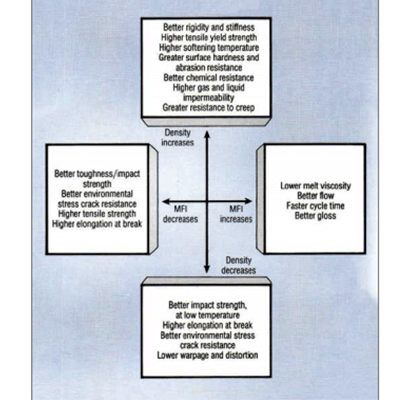Effect of Melt Flow Index and Density
In our previous blog post, we explored Grade Selection for Rotational Moulding
Choosing the right grade of LLDPEs depends on many factors, one of those being the effects of the melt flow index and density of the product which will be explored in this blog post.
The end-use properties of the rotationally moulded product will depend on the density and Melt Flow Index (MFI) of the polyethylene used. Increasing the density leads to increased stiffness as well as a higher softening temperature, surface hardness and abrasion resistance. A higher MFI is desirable for ease of flow but low MFI leads to better toughness and environmental stress crack resistance. Polyethylenes with an MFI between 2 and 20 g/10min can be processed by rotational moulding, but normally grades with an MFI of approximately 3 to 5 g/10min are most suitable. The effects of changes in MFI and density on the properties of polyethylene rotational mouldings are shown in Figure 1.

Melt Flow Index and Density are two of the many factors involved in grade selection for rotational moulding. The next blog post will explore the effect of comonomer on crack resistance to reduce the amount of stress on polyethylene over time.



